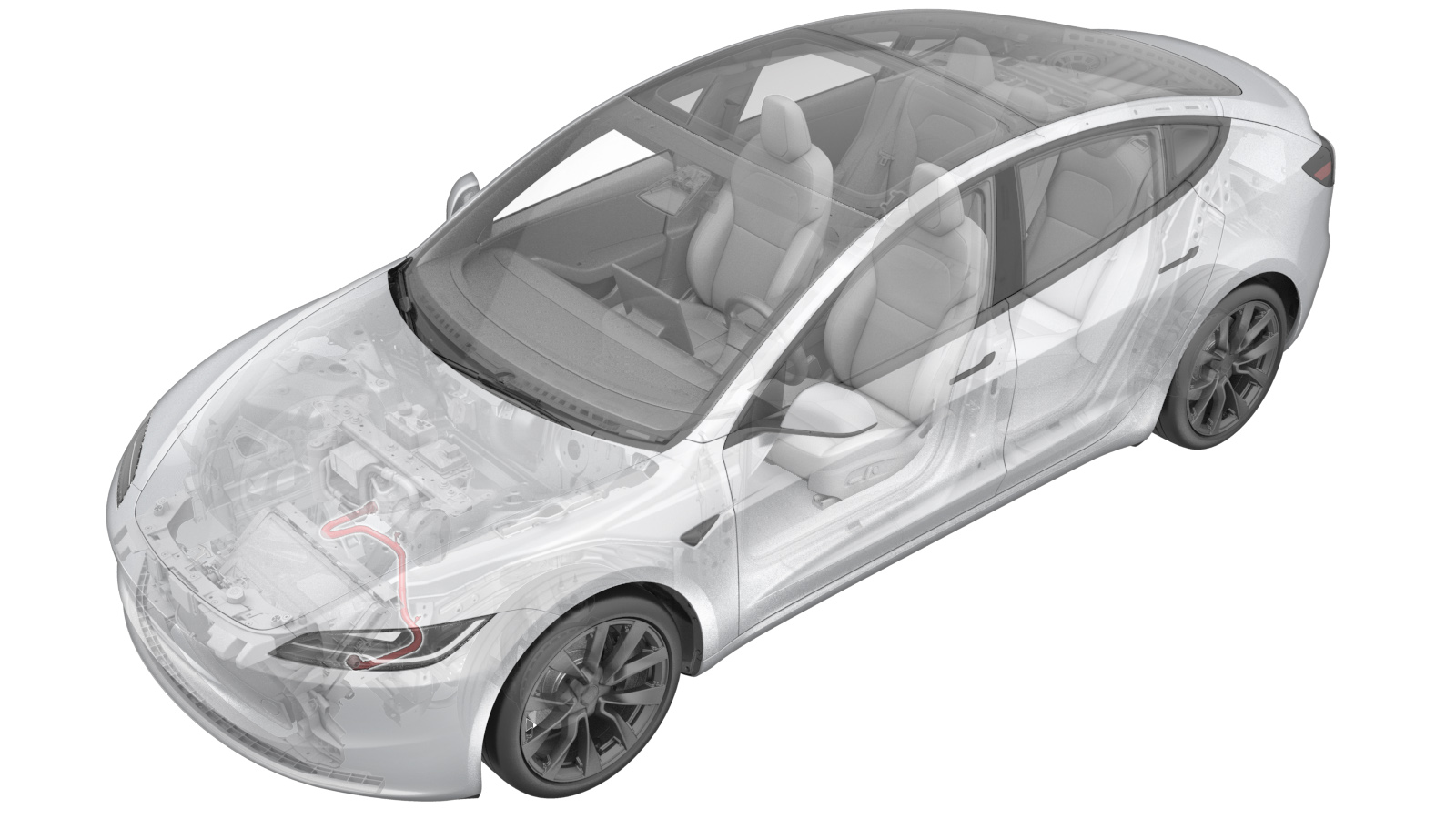Hose - Radiator Outlet (Remove and Replace)
 Correction code
1830020062
FRT
0.60
NOTE: Unless
otherwise explicitly stated in the procedure, the above correction code and
FRT reflect all of the work required to perform this procedure, including
the linked procedures. Do
not stack correction codes unless explicitly told to do so.
NOTE: See Flat Rate
Times to learn more about FRTs and how
they are created. To provide feedback on FRT values, email ServiceManualFeedback@tesla.com.
NOTE: See Personal Protection
to make sure wearing proper PPE when performing the below procedure.
NOTE: See Ergonomic Precautions for safe and
healthy working practices.
Correction code
1830020062
FRT
0.60
NOTE: Unless
otherwise explicitly stated in the procedure, the above correction code and
FRT reflect all of the work required to perform this procedure, including
the linked procedures. Do
not stack correction codes unless explicitly told to do so.
NOTE: See Flat Rate
Times to learn more about FRTs and how
they are created. To provide feedback on FRT values, email ServiceManualFeedback@tesla.com.
NOTE: See Personal Protection
to make sure wearing proper PPE when performing the below procedure.
NOTE: See Ergonomic Precautions for safe and
healthy working practices.
Remove
- Raise and support the vehicle. See Raise Vehicle - 2 Post Lift.
- Remove the rear underhood apron. See Underhood Apron - Rear (Remove and Replace).
- Remove the cabin intake duct. See Assembly - Fresh Air Gutter - HVAC (Remove and Replace).
- Remove the under hood storage unit. See Underhood Storage Unit (Remove and Replace).
- Disconnect the LV power. See LV Power (Disconnect and Connect).
- Remove the front aero shield panel. See Panel - Aero Shield - Front (Remove and Replace).
- Lower the vehicle fully.
- Position a fluid catcher underneath the front of vehicle.
-
Release the spring clip, disconnect
the radiator outlet hose from the supermanifold, and then plug the hose and
supermanifold.
-
Release the spring clip, disconnect
the radiator outlet hose from the radiator, and then plug the hose and radiator.
-
Remove the radiator outlet hose.
Install
-
Remove the plugs from the radiator and
radiator outlet hose, immediately connect the radiator outlet hose to the radiator, and
then fasten the clip.
NotePerform a push-pull-push test on the fittings to make sure that they are secure.
-
Remove the plugs from the
supermanifold and radiator outlet hose, immediately connect the radiator outlet hose to
the supermanifold, and then fasten the clip.
NotePerform a push-pull-push test on the fittings to make sure that they are secure.
- Remove the fluid catcher underneath the front of the vehicle.
- Install the front aero shield panel. See Panel - Aero Shield - Front (Remove and Replace).
- Lower the vehicle fully.
-
Remove the coolant bottle cap, and
then fill the coolant to the proper level.
NoteEnsure that the coolant level is at the "Max" line.
- Connect the LV power. See LV Power (Disconnect and Connect).
- Connect the vehicle to a laptop with Toolbox.
-
In Toolbox, click Actions/Autodiag tab, type
"Purge" into the search field, click via Toolbox: (link), click Run, and allow the routine
to complete.
NoteClick the "x" at the top right of the window to close.
-
Inspect the coolant level and top off
as necessary, and then install the coolant bottle cap.
NoteMake sure vehicle is not in Drive, shifting the vehicle into Drive will stop this routine. The test will last approximately 10 mins. The test will vary speeds from 3500-6500 RPM (idle speed = ~1500 RPM) and actuate the valve between series and parallel. If speed hovers at 7000 RPM, it indicates the pump is air locked, perform the vacuum fill again. Continue to add coolant and purge until the coolant level reaches between the NOM and MAX Lines on the bottle.
- Install the under hood storage unit. See Underhood Storage Unit (Remove and Replace).
- Install the cabin intake duct. See Assembly - Fresh Air Gutter - HVAC (Remove and Replace).
- Install the rear underhood apron. See Underhood Apron - Rear (Remove and Replace).
- Remove the vehicle from the 2 post lift. See Raise Vehicle - 2 Post Lift.